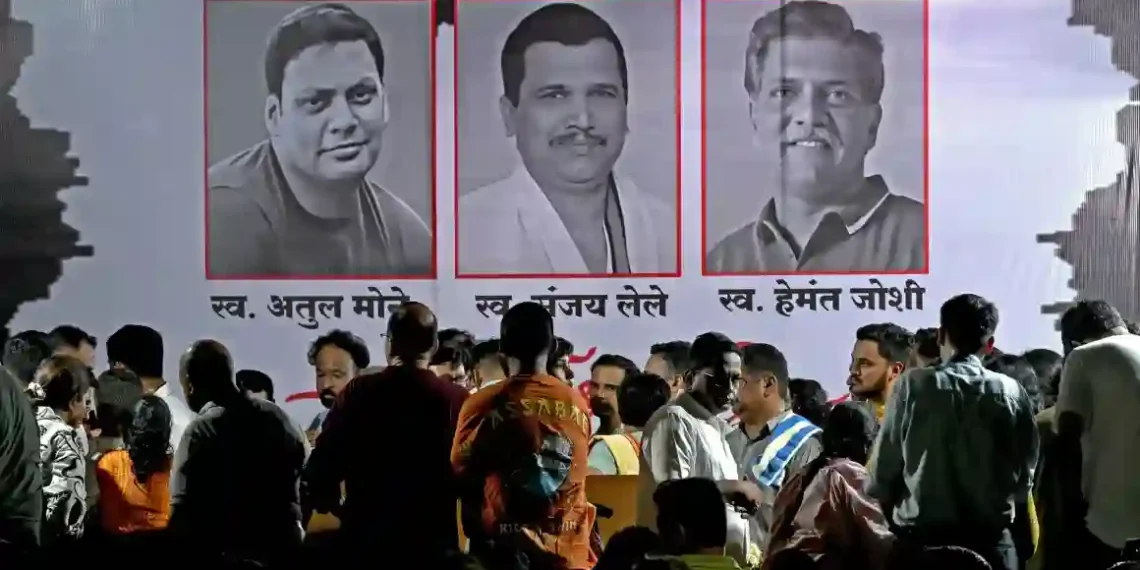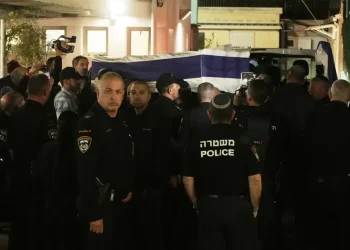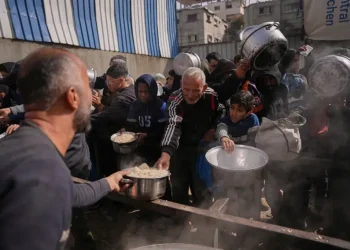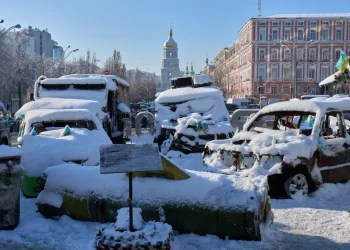Grief and Anguish After Tourist Massacre in Kashmir Leaves Families Shattered
A dream trip turned into a nightmare this week when 26 tourists were brutally shot dead by militants in Indian-administered Kashmir, a tragedy that has reignited tensions between India and Pakistan and left families heartbroken and scarred.
Among the victims was Ramachandran Narayanamenon, 69, who had just returned home after decades working in Qatar, ready to enjoy a peaceful retirement filled with travel and time with family. He had embarked on the trip with his wife, daughter, and grandchildren, excited to make new memories.
“He sounded so happy when we spoke before his flight,” recalled his longtime friend Balachandran Menonparambil, who described Narayanamenon as “caring, reliable, and full of life.”
A day later, Menonparambil learned his best friend was gone.
“I tried calling him when I saw the news, but there was no answer,” he said. “When I spoke to his son, he told me, ‘Dad is gone.’ It feels like only half of me is working now.”
The attack, according to survivors, was terrifying and deliberate. Militants singled out men and shot them at close range. Some survivors said the gunmen accused their victims of supporting Indian Prime Minister Narendra Modi.
The massacre took place in Pahalgam, a popular tourist spot, and has plunged families into unimaginable grief.
Kavita Lele lost her husband, Sanjay, 50, and two cousins, Hemant Joshi, 45, and Atul Mone, 43. All three were family men and the main providers for their households. They had come from just outside Mumbai, excited for a long-planned getaway.
Kavita, who struggles with partial paralysis, had hesitated to join the trip. But her husband insisted: “If you don’t come, none of us will go,” he had told her. Eventually, she agreed—and together they set off for Kashmir.
Shortly before the attack, the group bought food from a local stall. When the gunfire erupted, they initially mistook it for fireworks. Locals quickly warned them to seek shelter, but it was too late. The three men were shot, and a bullet grazed the hand of their 20-year-old nephew, Harshal.
Kavita, despite her disability, took nearly four agonizing hours to make her way down the hill to safety.
“They were so excited for this trip,” said Rajesh Kadam, Kavita’s brother-in-law, who later traveled to Kashmir to help bring the survivors home. “Now, our lives are changed forever. This pain will never end.”
The attack has once again strained India-Pakistan relations. India swiftly blamed Pakistan for supporting the militant groups behind the killings, a charge Islamabad denies. In response, New Delhi downgraded diplomatic ties and suspended cooperation in a key water-sharing treaty—moves that have edged the nuclear-armed rivals closer to renewed confrontation.
The backdrop of violence in Kashmir is a familiar one. Both India and Pakistan claim the region in full but control only parts of it. Since 1947, the two nations have fought three wars over the mountainous territory, and a decades-long insurgency has taken tens of thousands of lives.
In 2019, Indian Prime Minister Narendra Modi revoked Kashmir’s autonomy, further fueling unrest in the Muslim-majority region. Tuesday’s attack is the latest reminder that, for all the natural beauty Kashmir offers, deep political and religious divides continue to drive deadly violence.
Across India, protests have erupted demanding justice for the victims and accountability for those responsible. But for the families forever changed by this attack, no amount of action can erase the pain.
“We now have to live with this,” said Kadam. “There is no going back.”
This article was rewritten by JournosNews.com based on verified reporting from trusted sources. The content has been independently reviewed, fact-checked, and edited for accuracy, neutrality, tone, and global readability in accordance with Google News and AdSense standards.
All opinions, quotes, or statements from contributors, experts, or sourced organizations do not necessarily reflect the views of JournosNews.com. JournosNews.com maintains full editorial independence from any external funders, sponsors, or organizations.
Stay informed with JournosNews.com — your trusted source for verified global reporting and in-depth analysis. Follow us on Google News, BlueSky, and X for real-time updates.













